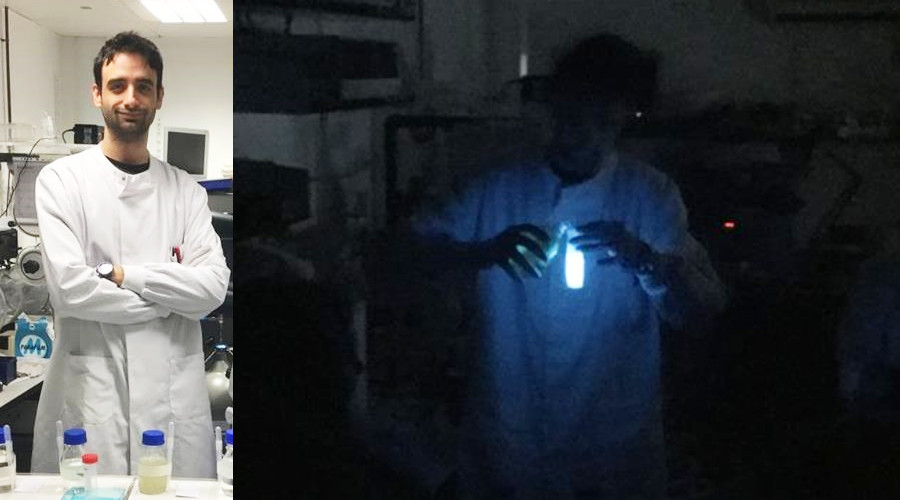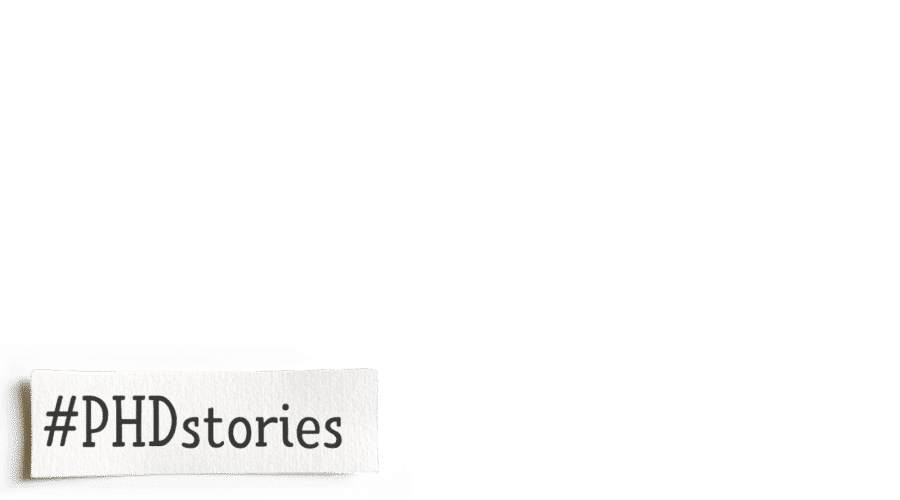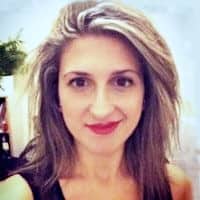#PHDstory | Andrea Marchesi


What do you do your PhD in and what is your main research topic?
My PhD is in Chemistry. I am part of a project funded by the European Union called GLYCOVAX (http://www.glycovax.eu/), and I am trying to synthetize short chains of sugars, called oligosaccharides, using enzymes. Enzymes are protein evolved through time to enable chemical reactions in living organisms, acting like a biological catalyzer. The topic is about synthesizing carbohydrates present in pathogens with the aim of producing new vaccines against them. These vaccines would be directed against bacterial infections that at the moment can cause serious illness in newborn children.
How did you get interested in this particular topic?
I have always been keen on science since I was a kid. I studied Pharmaceutical biotechnology, where I started to love organic chemistry. I started to be interested in carbohydrate chemistry during my Master degree lab work, where I started working with sugars. It is a very challenging field of chemistry, and really, either you love it or hate it. In my case has been the former. I developed a small expertise in the field after one year of internship, so I choose to continue with it. Furthermore, I have always been keen on pharmaceuticals and how to solve medical conditions using chemistry and molecular biology, so in this project I fit both my area of interest and my expertise.
Tell me more about it.
Carbohydrates play a wide range of biological functions; from the structural one (all plant cells walls are made of cellulose, a polymer of glucose), to the probably most famous one: supplying energy to our cells. They are an essential class of biomolecules without which life as we know it would not be possible.
They are involved in immunological processes as well: exposed on the surface of the cells as small “flags”, they enable our cells to recognize each other. In the same way, when a cell turns into a cancer cell or a bacterium enters our organism, they show their own carbohydrate “flags”, often developed to escape the immune system or to migrate into specific parts of our body. The aim of our project is to synthesize the carbohydrates flags showed by some of those bad guys (pathogenic bacteria) and use them to develop new vaccines against them. Our immune system should be trained to recognize them and stop the infection immediately .
Is yours going to be a new approach?
My approach is relatively new. In fact, if carbohydrate chemistry started over 100 years ago (if you studied chemistry at school you may have heard of Fischer, one of the fathers of this field), the enzymatic approach to it is quite recent, due to the development in molecular biology technique of the last 30 years. The application of enzymatic synthesis to this branch of chemistry (as in many others) is a great opportunity. Enzymes usually work in more environment-friendly conditions, (i.e. buffers and water instead of toxic solvents) and, as they are the result of hundreds of millions, if not billions, of years of evolution, they are very selective for specific reactions, giving high yields and avoiding the formation of byproducts.
Carbohydrate chemistry can be quite tricky, and applying enzyme to it can speed up the synthesis of molecules of medical interest. A critical point is to discover these enzymes and have them available and active, so I think that for the moment, the chemical and the enzymatic approach should work together.
How is your research going to impact the world?
My highest hope is that my research would lead to a direct impact by delivering a functioning vaccine. Otherwise, I think I will be able to provide new enzymatic tools to make the synthesis of oligosaccharide easier for whoever wants to work on it, so indirectly contributing to a development of other drugs or bioactive molecules containing sugars.
Do you also collaborate with other research groups?
Yes, I do. As I mentioned earlier, I am part of a project funded by the European Union, GLYCOVAX (http://www.glycovax.eu). A key point of the project is to enhance the relationships between future scientists all over Europe by sharing a common project for their PhD project.
I am a PhD student at the University of Manchester, but I am now writing from Milan, where I am working for the next 6 months exchanging expertise and learning different techniques. I personally believe that collaboration is an essential requirement in science nowadays; competences are so specific that you simply just can’t know how to do everything at a top level by yourself. If you want to produce a high impact with your research, you need to collaborate. In our consortium, there are members working on the biological aspect of developing a vaccine and chemists focusing on the synthesis of the target molecule. This way, we can develop special skills in our field and at the same time share knowledge and have the potential to hopefully get to a useful final product
What makes you get out of bed in the morning? What inspires you?
The first thing is probably to solve the day by day challenge I have in the lab, finding solutions and striving for the success of my ideas. Of course, the main aim of the project is very useful, and I would be very happy and proud to achieve it, but sometimes it looks too big or far away, so I find my motivation mostly in solving the small problems I had the day before, knowing that little by little I am building something.
Sometimes, the hopeless experiment is the one that gives you more satisfaction and energy to push your work. Also, learning is something that gives me energy; I know that I am going to be a little bit more skilled than I was yesterday.
Where do you see yourself in 5 years?
My general plan is to go back to Italy and bring with me what I learnt. I feel that I have a strong bond with my country and I want to do something to make it better, even if sometimes it looks very difficult. Therefore, I think I would see myself also working for a private company instead of a university, just to enhance the possibilities of a return, and also to face a different environment.
What makes life meaningful?
My personal idea is that life is meaningful when you are, generally speaking, happy. Very often you can be happy by developing your natural skills and passions, essentially by being who you are. When you love something, (I can think about me and how I loved science since I was a kid), you should really fight for it and never give up. Everything else will come by itself, because when you are satisfied with yourself, everything else is easier.
What does the world need the most right now, in your opinion?
I think the world needs to change deeply. We, as human beings, are still anchored to an old concept of nations, building borders or walls, putting up a rivalry between ourselves, losing a lot of resources or even worse, lives. I am not saying we should lose our cultural roots, (as I said, I am strongly bound to them). I just think that our society should evolve.
Seeing where we are right now, being divided and enemies to one another is no longer a good option. We are a different parts of the same body. We are different from each other; each of us is special for something and we could work together and be a great and powerful athlete, and instead we are standing in a corner slapping ourselves. We can be different and be one at the same time, just humans. Sadly, we can see an opposite trend nowadays.
What is your dream society?
My dream society is one where humankind is united and based on pursuing wellness through science… I don’t know if you have ever watched Star Trek, but more or less that’s the idea.
What does science need the most right now, in your opinion?
I think science needs to be more appealing and less mystified. There is a general lack of trust in the scientific world, generated by the distance between the science itself and the rest of the population. A situation like this was maybe tolerable 100 years ago, but nowadays, the impact of science in our society is exponential. The scientist should become a more common job, the scientific culture should be known at every level of society. Probably better communication and better education for new generations are good points to start with.

“Today I have learnt about another application of enzymology: vaccines. I have worked in a similar field of Andrea’s research topic, but the final application of my study was very different. With Andrea I have learnt that one scientific approach can have more than one useful application for the human kind.”

“Today I have learnt about another application of enzymology: vaccines. I have worked in a similar field of Andrea’s research topic, but the final application of my study was very different. With Andrea I have learnt that one scientific approach can have more than one useful application for the human kind.”